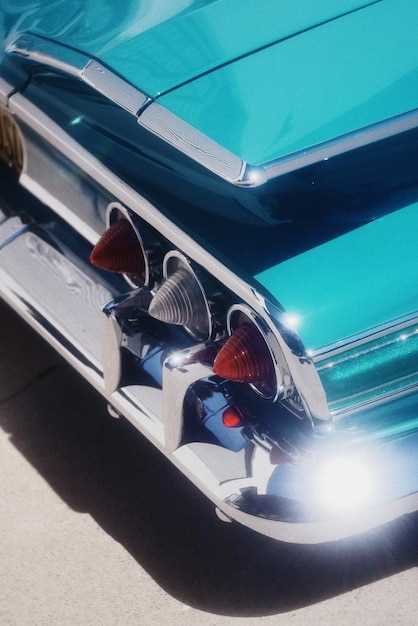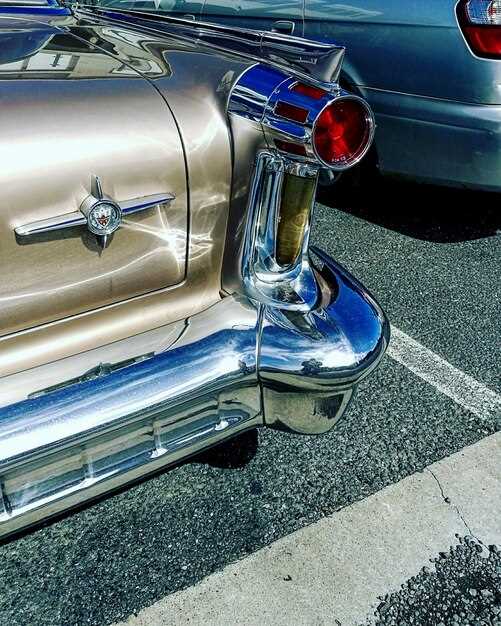
The world of classic cars is a vibrant community where enthusiasts often seek to enhance their vehicles through various modifications. However, these alterations can significantly impact the registration and inspection processes, raising questions about compliance with existing regulations. Understanding how modifications affect licensing rules is essential for both collectors and casual owners alike to navigate the complex landscape of classic car ownership.
When a classic car undergoes modifications, it may no longer fit within the parameters defined by standard licensing regulations. This can include changes to the engine, suspension, or even aesthetic alterations that could affect safety and emissions standards. As a result, owners often find themselves in a challenging position during the inspection process, where modified vehicles may face increased scrutiny, potentially complicating the registration process.
Furthermore, different jurisdictions have varying rules regarding modified classic cars, which can lead to confusion for owners who travel or relocate. Some areas may offer exemptions or special classifications for classic vehicles, while others could impose stringent requirements. It is crucial for car owners to stay informed about these regulations to ensure their modifications do not hinder their ability to legally operate and enjoy their classic cars.
Understanding Legal Implications of Vehicle Modifications

Vehicle modifications can significantly alter the original specifications of a classic car, leading to various legal implications that owners must navigate carefully. One of the primary concerns associated with modifications is the registration process. Different jurisdictions have specific laws that determine how modifications affect a vehicle’s registration status. When a classic car is modified, it may require re-inspection to ensure compliance with local regulations regarding vehicle safety and emissions standards.
Modifications that impact the structural integrity, performance specifications, or aesthetic appearance of a classic car may necessitate a change in registration classification. For example, converting a standard vehicle into a race car can lead to a need for a specialized license plate and registration system, which is subject to different rules than standard road vehicles.
Furthermore, inspections play a crucial role in the legal implications surrounding vehicle modifications. In many regions, modified cars must undergo a thorough inspection conducted by certified professionals to confirm that alterations meet safety and regulatory requirements. Failure to comply with inspection mandates can result in fines, penalties, or even the inability to legally operate the vehicle on public roads.
Owners considering modifications must also be aware of potential impacts on insurance policies. Modifications may change the insurability of a classic car and the associated premiums. Certain alterations might lead to a policy void if the insurer is not informed, jeopardizing legal coverage in case of accidents or theft.
In summary, understanding the legal implications of vehicle modifications requires a thorough comprehension of the registration and inspection processes specific to each jurisdiction. Classic car owners should conduct careful research and, if necessary, consult legal experts or automotive professionals to navigate these complex regulations effectively.
Analyzing the Inspection Report Requirements for Modified Classic Cars

The process of obtaining a registration for modified classic cars often necessitates a thorough inspection report, which plays a crucial role in ensuring that these vehicles comply with safety and emissions standards. The requirements for this inspection report can vary significantly from state to state, reflecting local regulations and enforcement practices.
Typically, the inspection is administered by certified professionals who assess various aspects of the vehicle. These aspects include the structural integrity, braking systems, lighting provisions, and exhaust emissions. The inspection report must clearly document the condition of each of these components, indicating whether they meet the required standards or if modifications have introduced any non-compliance issues.
In many jurisdictions, the documentation of modifications is essential. Owners of modified classic cars are usually required to provide evidence showing that any changes made to the original vehicle design adhere to safety regulations. This can include aftermarket parts or extensive alterations that may affect the car’s performance and safety. The inspection report serves as an official record of these modifications and their compliance status.
Additionally, the inspection report often includes recommendations for repairs or corrections needed to achieve compliance, which must be completed before the vehicle can be legally registered. Without a satisfactory report, registration will be denied, significantly affecting the legitimacy and roadworthiness of modified classic cars.
Furthermore, the inspection process may not only focus on mechanical aspects but also assess aesthetic alterations, particularly those that could affect visibility or recognition of the vehicle type. Such comprehensive requirements aim to maintain the integrity of classic cars while ensuring that they remain safe and environmentally compliant.
In conclusion, the inspection report requirements for modified classic cars are a critical component of the registration process. They serve both to protect vehicle owners and the general public, ensuring that modifications do not compromise safety or legality. Understanding these requirements is essential for any classic car enthusiast looking to make modifications while maintaining compliance with local laws.
Navigating the Registration Process for Modified Classic Vehicles
Registering a modified classic vehicle can present unique challenges compared to standard vehicles. The first step in the registration process is to understand the specific regulations in your state or country regarding modifications. Different jurisdictions have varied requirements, so it’s crucial to research local laws that apply to modified cars.
Once you are familiar with the regulations, the next important step is to prepare for the vehicle inspection. Most states require modified vehicles to undergo a thorough inspection to ensure compliance with safety and emissions standards. This inspection is essential for assessing the legality of the modifications made. Be sure to keep all documentation related to the modifications, including invoices from parts purchases and receipts from professional services.
After passing the inspection, you can proceed to the actual registration process. This typically involves filling out the necessary forms, providing proof of ownership, and presenting the inspection certificate. Fees may apply during registration, and these can vary by state. Ensure all relevant documentation is complete to avoid delays in obtaining your registration.
It is beneficial to contact your local Department of Motor Vehicles (DMV) or equivalent authority ahead of time to clarify any doubts about the process. Some jurisdictions may also require an additional inspection by a special committee reviewing modified vehicles, which can add another layer to the process.
Lastly, staying informed about any changes to regulations regarding modified vehicles is essential for successful registration and ownership. After you complete the registration, maintain regular compliance with state laws to avoid future complications.




